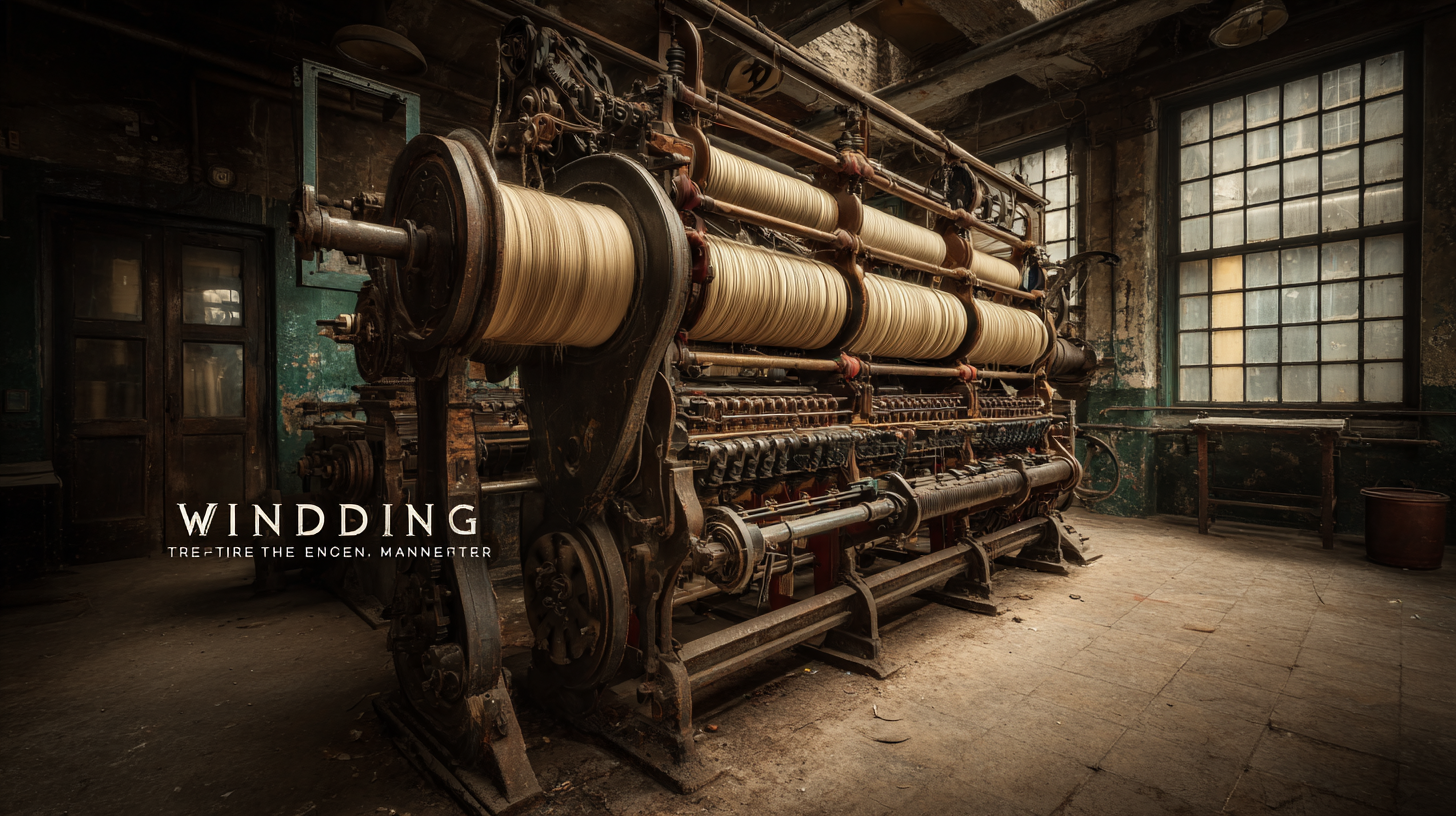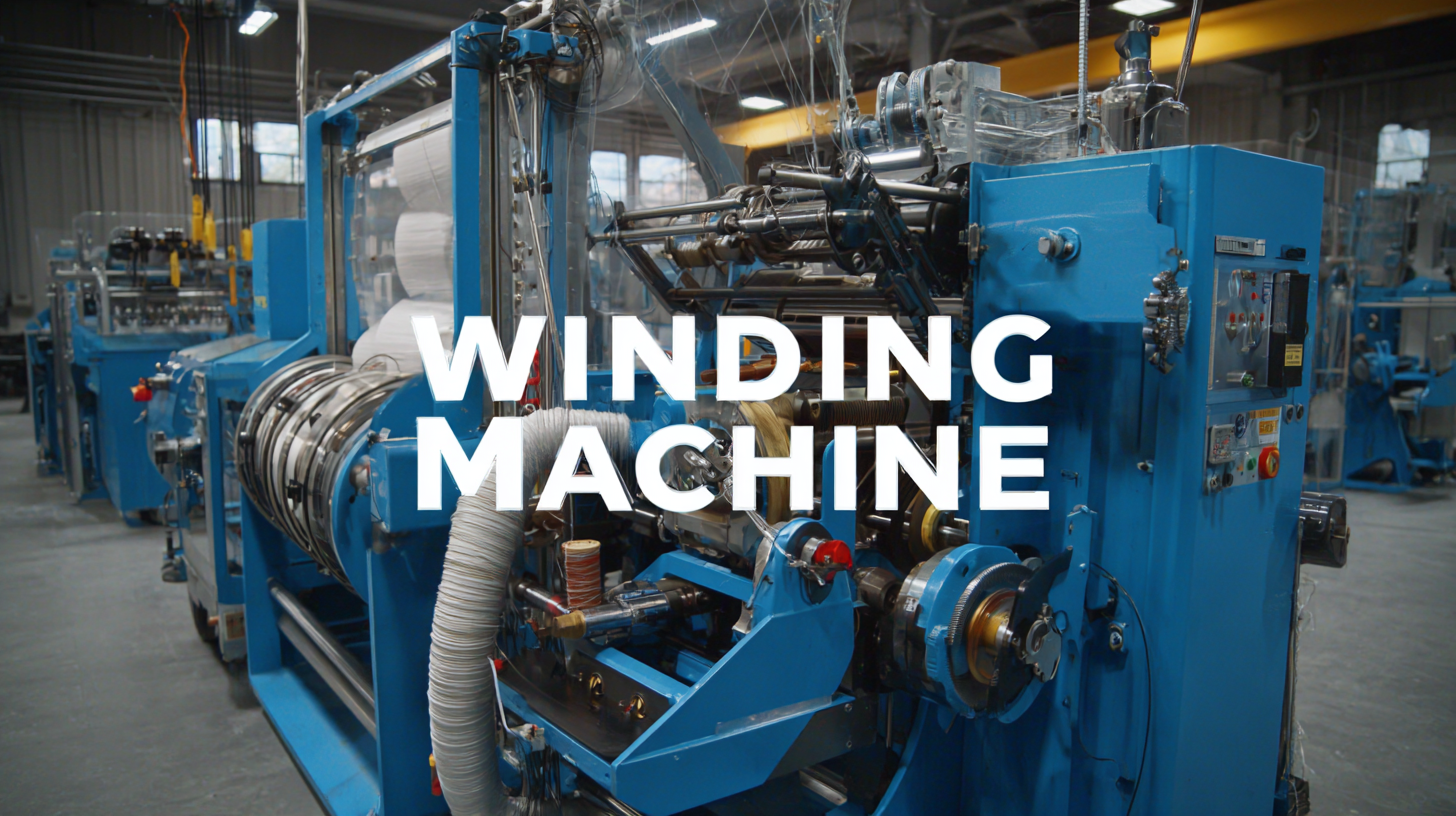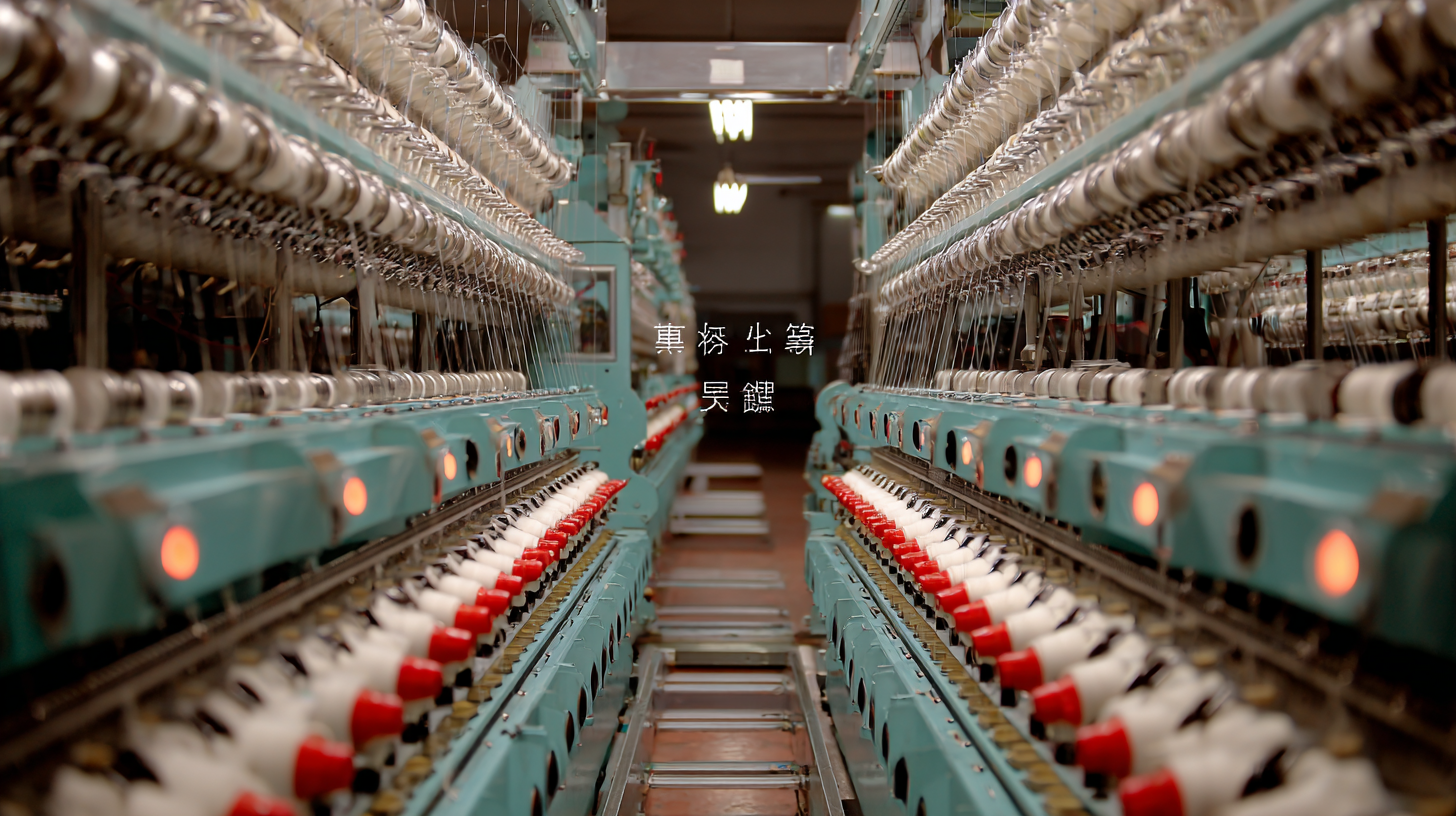
The Ultimate Guide to Finding the Best Winding Machine Manufacturer Through Comprehensive Comparisons
In the fast-evolving manufacturing industry, the demand for efficient and high-quality winding machines has grown significantly, with the global winding machine market expected to reach $2.5 billion by 2026, representing a CAGR of 5.3% (Mordor Intelligence). As industries such as textiles, electronics, and automotive increasingly rely on advanced winding technologies for optimal production processes, selecting the right winding machine manufacturer becomes crucial. A comprehensive comparison of manufacturers can be the key to identifying the best options available, ensuring not only quality and technological advancement but also cost-efficiency and reliability. This guide aims to navigate the complexities of choosing the right winding machine manufacturer by providing in-depth analyses and comparisons, ultimately empowering businesses to make informed decisions that enhance their operational capabilities.

Key Features to Consider When Choosing a Winding Machine Manufacturer
When choosing a winding machine manufacturer, several key features should be considered to ensure you make the best decision for your needs. First, evaluate the manufacturer's experience and reputation in the industry. An established company with a proven track record will likely offer higher quality machines and better customer service. Look for reviews and case studies that highlight their success and reliability in producing winding machines.
Another critical feature to consider is the technology used in the winding machines. Advanced technology can lead to improved efficiency, accuracy, and flexibility in production. As you compare manufacturers, inquire about the specifications of their machinery, including automation options and compatibility with different materials. Make sure to assess how these features align with your production requirements.
**Tip:** Always request demonstrations or trial periods for the winding machines you are considering. This will allow you to witness the machine's performance and adaptability firsthand. Additionally, don't hesitate to ask for a clear breakdown of after-sales support and warranty options to ensure you're making a sound investment.
The Ultimate Guide to Finding the Best Winding Machine Manufacturer Through Comprehensive Comparisons - Key Features to Consider When Choosing a Winding Machine Manufacturer
| Feature | Manufacturer A | Manufacturer B | Manufacturer C |
|---|---|---|---|
| Production Capacity | 1000 units/month | 1200 units/month | 800 units/month |
| Custom Solutions | Available | Limited | Available |
| Lead Time | 4 weeks | 6 weeks | 5 weeks |
| Warranty Period | 2 years | 1 year | 3 years |
| Customer Support | 24/7 | Business hours | 24/7 |
Comparative Analysis of Leading Winding Machine Brands in the Market
When embarking on the journey to find the best winding machine manufacturer, a comparative analysis of leading brands can significantly influence your decision-making process. The market is filled with numerous options, ranging from established brands to emerging innovations. Conducting thorough research enables you to assess factors such as performance, durability, and technological advancements, which are key to ensuring that you invest in a reliable winding machine that meets your needs.
Tips:
Start by identifying your specific requirements, such as the types of materials you will be using and the volume of production you anticipate. This will help narrow down your options and focus on brands that specialize in your area of interest. Utilize user reviews and industry reports to get insights into the experiences of other customers, as these can provide valuable context that goes beyond the specifications provided by manufacturers.
Additionally, don't hesitate to reach out to manufacturers directly for more information. Ask about their production processes, quality control measures, and customer service policies. Engaging with potential suppliers can not only clarify doubts but also give you a sense of their commitment to customer satisfaction, which is an essential factor in choosing the right winding machine manufacturer.
Understanding the Latest Technologies in Winding Machine Manufacturing
In today's rapidly evolving manufacturing landscape, understanding the latest technologies in winding machine manufacturing is crucial for businesses looking to optimize their production processes. Reports indicate that the global winding machine market is projected to reach $5.6 billion by 2025, driven by advancements in automation and precision engineering. Manufacturers are increasingly adopting state-of-the-art technologies, such as IoT-enabled machines and AI-driven analytics, to enhance operational efficiency and reduce downtime.
The integration of smart technologies in winding machines allows for real-time monitoring and data collection, ensuring better quality control and predictability in production. According to a 2022 market survey by Industry Research, over 60% of respondents indicated that they have already implemented automation features in their winding processes. This transition not only leads to increased output but also substantial cost savings, as fewer resources are wasted. As companies continue to prioritize sustainability, manufacturers are also innovating eco-friendly winding solutions to meet environmental standards, further shaping the future of this industry.
The Ultimate Guide to Winding Machine Manufacturing Technologies
This chart compares the adoption rates of various technologies in winding machine manufacturing over the past five years. The data highlights the trends and preferences among manufacturers for advanced technologies.
Evaluating Customer Support and Service Options from Manufacturers
When selecting a winding machine manufacturer, customer support and service options are critical factors that can greatly influence your overall satisfaction and operational efficiency. A manufacturer that prioritizes excellent customer service will ensure that any issues you encounter are promptly addressed, minimizing downtime in your production line. Look for companies that offer 24/7 support and have a dedicated team to assist with your inquiries, whether it's technical issues or general maintenance questions. A responsive support system not only enhances your experience but also reflects the manufacturer’s commitment to their clients.

In addition to support availability, evaluating the range of service options is essential. Consider manufacturers that provide comprehensive training programs for your team, ensuring that you can operate the machines effectively from the start. Furthermore, manufacturers that offer regular maintenance and inspection services demonstrate their investment in your long-term success. These proactive measures can prevent costly repairs and extend the lifespan of the winding machines. By focusing on customer support and service offerings, you can choose a manufacturer that not only meets your immediate needs but also partners with you for ongoing growth and improvement.
Cost-Benefit Analysis: Investing in Quality Winding Machines for Your Business
Investing in quality winding machines can significantly impact the efficiency and profitability of your business. In the world of manufacturing, the right machinery can streamline processes, reduce waste, and enhance product quality. However, the initial cost of high-end winding machines may deter some businesses from making the purchase. A thorough cost-benefit analysis is essential to understand the long-term advantages of investing in superior equipment.
When conducting a cost-benefit analysis, it’s important to consider not only the purchase price of the winding machine but also its operational costs and potential savings. High-quality winding machines typically offer greater reliability, which means less downtime and fewer repairs. Additionally, these machines are often designed to optimize material usage, which can yield significant savings over time. By comparing the total life cycle costs of different models, businesses can make informed decisions that align with their financial goals while ensuring optimal production efficiency. Ultimately, investing in a reliable winding machine is not just an expense; it is a strategic move that can elevate operational performance and drive business growth.

